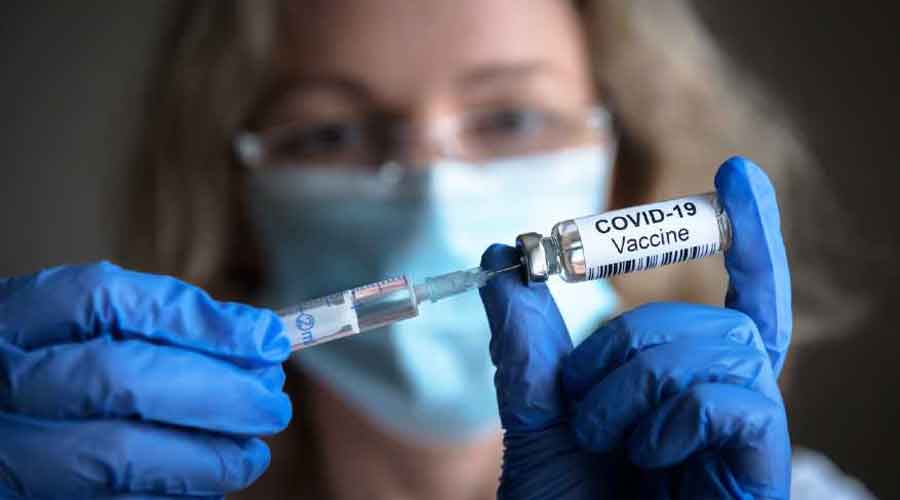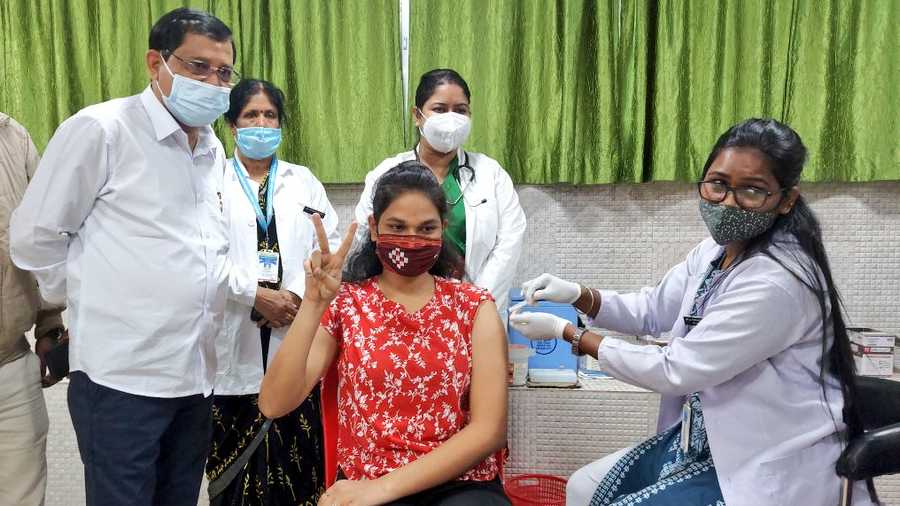India’s drug regulatory authority on Friday approved two clinical trials to assess a candidate intranasal vaccine against Covid-19 that scientists say is among the first to have shown promise that it might block both infection and transmission.
The two trials, approved by the Central Drugs Standard Control Organisation (CDSCO), will evaluate the intranasal vaccine in several hundred volunteers both as a standalone two-dose vaccine and as a booster vaccine for recipients of Covaxin or Covishield.
The vaccine, developed by India’s Bharat Biotech and scientists at Washington University, St Louis, has been observed in animal studies to induce immunity that protects both the upper and lower respiratory tracts from SARS-CoV-2, the virus that causes Covid-19.
The intranasal vaccine’s most promising aspect is its potential to confer sterilising immunity — or stop the virus from replicating in the body. In contrast, current Covid-19 vaccines protect people from severe disease but are not as effective in preventing infections or blocking transmission.
Bharat Biotech hopes to assess the vaccine as a booster in roughly 900 volunteers and as a standalone two-dose vaccine in over 3,000 volunteers in nine clinical trial sites across the country.
Vaccine scientists familiar with clinical trial timelines believe that if all goes well, the intranasal vaccine could become available for public use during the second half of 2022.
The CDSCO’s approval follows encouraging results from a smaller trial of the intranasal vaccine on roughly 200 volunteers in hospitals in Amravati, Gorakhpur and Patna that evaluated its capacity to induce anti-Covid-19 immune responses.
The intranasal vaccine was the first to “definitively show sterilising immunity”, one of the scientists involved in its development told The Telegraph.
The nasal delivery route creates a strong immune response throughout the body, but is particularly effective in the nose and respiratory tract, thus preventing the infection from taking hold in the body.
“Intranasal vaccines are easier to administer in mass immunisation campaigns and can help stop or reduce transmission,” the scientist said.
In studies on rhesus macaques, Washington University School of Medicine researcher Michael Diamond and his colleagues had found that a single intranasal dose of the vaccine induced multiple immune responses and limited or prevented infection in the upper and lower respiratory tracts.
Bharat Biotech’s managing director Krishna Ella — a scientist turned entrepreneur — had early during the pandemic recognised the intranasal vaccine’s capacity to induce sterilising immunity and invested in the candidate vaccine through a pact signed by August 2020.
Ella had figured out that while the other vaccines under development, including the home-grown Covaxin based on an inactivated (killed) virus, could provide robust immune protection against severe disease, the intranasal vaccine was as effective in preventing infections and the spread of the virus.
Bharat Biotech, which acquired the rights to develop, evaluate and distribute the vaccine in all markets except the US, Europe and Japan, has said it could produce up to a billion doses per year.
Diamond and his colleagues developed the vaccine by inserting a key protein --- which SARS-CoV-2 uses to enter human cells --- inside an adenovirus that causes the common cold, after tweaking the virus to render it unable to cause illness.
The harmless adenovirus carries the protein into the nose, enabling the body to launch immune responses against SARS-CoV-2 without illness.
The SARS-CoV-2 infection starts in the mucosal surfaces of the upper respiratory system — the nose and the throat — and scientists expect that the mucosal immunity induced by intranasal vaccines would provide effective, long-lasting defence against coronavirus infections.












